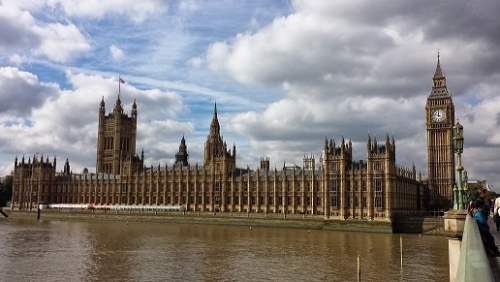Strategy
Investors Could Flee UK Overnight If Voters Choose "Anti-Business" Government Next May, Warns Rathbones

[tag|Rathbones|]Rathbones[/tag] has warned that investors could flee the UK if an anti-business Government is elected at the General Election in May next year.
Rathbones has warned
that investors could flee the UK if an anti-business government
is elected at the general election in May next year.
A latest report by the private bank said the UK should not take
investors for granted, adding that they quickly find alternative
homes for their capital if the political environment has turned
against them. It pointed to the mass exodus in France when
Francois Hollande was elected president two years ago and
introduced a 75 per cent top rate tax on high earners. The most
high-profile dissenter was French actor Gerard Depardieu who took
up Russian citizenship in 2013 and accused Hollande of punishing
“success, creation and talent".
The significance of such trends is that, as the wealth management
industry in London and elsewhere has seen, shifts of high net
worth and ultra HNW individuals to new jurisdictions for reasons
of tax and business created new client segments. In London, for
example, there is a brisk business in securing immigration rights
and visas for wealthy investors fleeing more difficult situations
at home.
All three mainstream political parties came under attack in the
Rathbones report, yet it was Labour and its leader Ed Miliband
that received the most stinging criticism.
Rathbones described Miliband as “the most left-wing Labour leader
since Michael Foot”, adding that his policies - which include
freezing energy prices and rents and breaking up high street
banks - are just mere populism.
“Mr Miliband’s approach appears unrestricted and his next attack
could be on any sector - the only requirement is that he thinks
it makes too much profit from the segment of voters that he is
targeting,” said Jane Sydenham, investment director at Rathbones.
“This creates a difficult environment for investors and
international capital could move elsewhere.”
The Tories were pictured in a more positive light. Yet the
private bank predicts the party will fail to win a majority for a
second time around. Its inability to reach agreement with
the Liberal Democrats about re-balancing constituencies means
Labour has a considerable advantage in the upcoming election and
can gain a majority with a lower share of the vote.
As a result all forms of coalition government are still possible
meaning that with less than 12 months until voting investors have
little visibility on the potential implications for the
economy.
But regardless of the election the most pressing issue for
investors is protecting themselves against a rise in interest
rates.
“To reduce the risk of overheating and inflation, which would
require even bigger interest rate rises in time, a new chancellor
would encourage the BoE to start raising rates straight after the
election. Investors should plan accordingly,” the report
said.